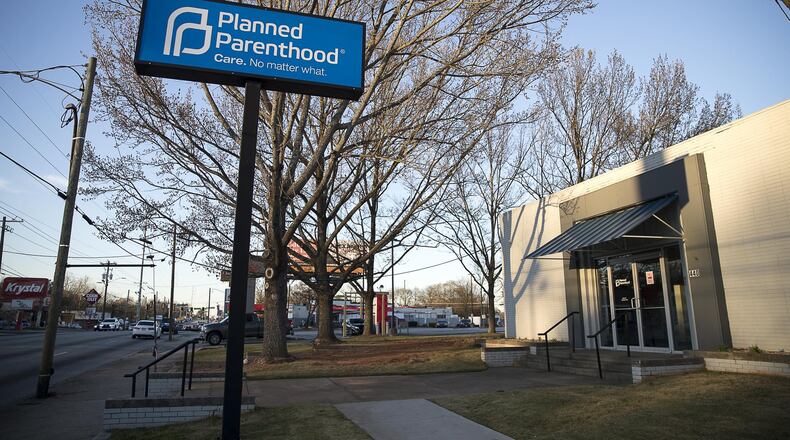The number of abortions performed in Georgia increased by nearly 1,100 — or almost 4% — last year, according to new numbers from the state Department of Public Health.
The latest figures, for 2018, were released about three months after Gov. Brian Kemp signed one of the country’s strictest abortion laws.
State records show 28,544 reported abortions were performed in 2018 at a rate of 8.6 abortions per 1,000 females between the ages of 10 and 55, according to numbers published Aug. 7 on the DPH's vital statistics database. That is 1,091 more abortions than were reported in 2017, when 27,453 abortions were performed at a rate of 8.3 abortions per 1,000 females.
According to U.S. census figures, Georgia added about 100,000 residents between 2017 and 2018.
Anti-abortion activists said they were surprised that the number of abortions increased last year. Virginia Galloway, a lobbyist with the conservative Georgia Faith and Freedom Coalition, called it “catastrophic.”
“This exposes the whole ‘safe, legal and rare’ argument to be a murderous lie,” Galloway said.
>> Related: A look at abortion bills around the U.S. in 2019
>> Related: Georgia abortion providers file lawsuit challenging 'heartbeat' law
>> Related: Kemp signs anti-abortion 'heartbeat' legislation, sets up legal fight
Galloway said the total number of abortions performed in Georgia last year is more than the population of many of the state’s counties.
“If something came in and wiped out a whole county’s population, it would be declared a national disaster,” she said.
Staci Fox, the president and CEO of Planned Parenthood Southeast, said she didn’t want to make assumptions about what led to more people getting abortions in Georgia last year.
“What we can say is hundreds of thousands of women across this state are in need of publicly funded contraception. Half of Georgia’s counties have no (obstetrician/gynecologist),” she said. “Georgia lawmakers need to be doing everything in their power to expand access to health care in our state instead of restricting it.”
While the number of abortions performed in Georgia has trended downward over the past 25 years, there was a similar spike in 2016, when the number of procedures jumped by nearly 3,000.
The abortion count has dropped by nearly 15% since 1994, due mostly to increased access to various forms of birth control, experts say. Georgia had a population of about 7 million in 1994, according to census figures. By 2018, that had risen to 10.5 million.
Anti-abortion activists have questioned the accuracy of state numbers, alleging that procedures done by obstetricians/gynecologists aren’t accurately reported and that more are performed. A DPH spokeswoman said the law requires providers to report all abortions performed in the state.
>> Related: Georgia's anti-abortion 'heartbeat' law pulses through 2020 fundraising
>> Related: Who could be prosecuted under Georgia's 'heartbeat' law?
Georgia passed a strict anti-abortion law earlier this year, which the law’s supporters said is an attempt to further decrease the number of abortions that are performed in the state.
House Bill 481 outlaws abortions once a doctor can detect fetal cardiac activity, which can occur as early as six weeks into pregnancy and before many women know they are pregnant. The law is scheduled to go into effect in January.
The American Civil Liberties Union of Georgia is challenging the law in court on behalf of the SisterSong Women of Color Reproductive Justice Collective, Planned Parenthood Southeast, and other abortion rights advocates and providers.
The ACLU also asked the court to keep the law from going into effect while the case makes its way through the legal process. A hearing is scheduled for Sept. 23.
Stay on top of what’s happening in Georgia government and politics at www.ajc.com/politics.
About the Author
Keep Reading
The Latest
Featured




